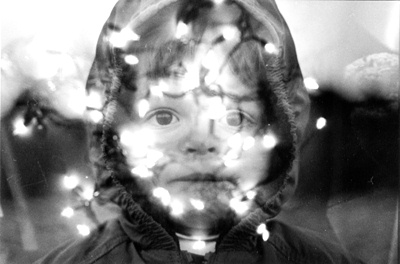All Nonfiction
- Bullying
- Books
- Academic
- Author Interviews
- Celebrity interviews
- College Articles
- College Essays
- Educator of the Year
- Heroes
- Interviews
- Memoir
- Personal Experience
- Sports
- Travel & Culture
All Opinions
- Bullying
- Current Events / Politics
- Discrimination
- Drugs / Alcohol / Smoking
- Entertainment / Celebrities
- Environment
- Love / Relationships
- Movies / Music / TV
- Pop Culture / Trends
- School / College
- Social Issues / Civics
- Spirituality / Religion
- Sports / Hobbies
All Hot Topics
- Bullying
- Community Service
- Environment
- Health
- Letters to the Editor
- Pride & Prejudice
- What Matters
- Back
Summer Guide
- Program Links
- Program Reviews
- Back
College Guide
- College Links
- College Reviews
- College Essays
- College Articles
- Back
Prodigy: Nature vs. Nurture? MAG
When my mother could first speak, she asked her parents for piano lessons. Hearing piano music made her fingers hunger to play. Her parents thought it might be a phase, but she persisted. If they weren't so poor, they might not have given it a second thought. They knew it would be a huge sacrifice, but my mother wouldn't stop asking and so my grandmother finally agreed. My mother started taking piano lessons from Mr. Garrison. He was highly respected, and his schedule was booked with young minds eager to play as well as he did.
My grandmother didn't know my mother was about to become a prodigy. No one told her to wake up in the middle of the night, searching for the piano. No one ever told her to practice. She did it all on her own. For the lessons that followed, Mr. Garrison would whisper to my grandmother, “You should stop working her so hard! Her desire to practice the piano will go away if you force her. Let her find it on her own!” To which my grandmother would reply, “I'm not making her practice! I wake up for work and she's already playing!”
At first, my grandmother didn't understand my mother's potential. But when the recitals came and she would read the programs (which are listed by skill level) she saw my mother farther down than all the teenagers when she was only nine. When my mother turned eleven, she was invited to a youth performing arts school. Even though she was too young, they admitted her anyway. By the time my mother was 13, she had mastered the piano.
From my story, you can see that a child prodigy was born. This is not something one learns. Obviously you can find arguments against this. One belief is that environment and the “nurturing” of parents create the child prodigy. But in every story I've read about them, the child demonstrates an astonishing brilliance before the parents realize it.
Then there is the story of a little boy named Drew. He couldn't speak until he was three, in fact he didn't produce much sound at all. But sound already had had a large impact on him. The ringing of church bells would cause him to stop and listen. He would react to bird song. And before he spoke, whenever his mother was reading to him and she missed a word, Drew silently would point to it. Even though Drew's mother only taught him a little piano, he decoded the rest of it on his own. By the age of five, Drew was performing Beethoven sonatas.
I believe that any child can be taught the piano, but excelling as Drew did is only found in a prodigy. Look at Mozart, who, at four years old, wrote his first concerto on the floor with chalk before his father had even recognized this ability.
Those who are on the “nurture” side of this nature versus nurture debate argue that genes and development can be controlled, and that a child's environment affects the prodigy. But my mother went to a public school, had parents who never made her work, and in her teenage years began to slack off in her studies, but she was still a phenomenally gifted classical pianist.
In addition, some suggest a child cannot have the emotional maturity that artistic greatness calls for. But it isn't so much about experiencing something tragic and expressing it in music – it's about feeling an emotional attachment and passion for the music itself. Just as children can say to their parents “I love you,” and express it genuinely, they can express this same kind of love for an instrument. I think that we look at prodigies and automatically say, “They were born with a gift.” We think it's a mechanical or logical thing. But, it isn't only that: they were born with a love. And that love is expressed through performance.
The desire to do something has to exist within the child. Just as you can't talk a frightened child into riding a roller coaster, you can't talk them into willingly performing surgery with excellence. Akrit Jaswal performed successful surgery when he was just seven years old. Most children can't even look at a scrape or cut with a bit of blood and keep a straight face. I believe that Jaswal was just born with this calmness, desire, and incredible ability to be a surgeon.
William James Sidis could read before he was two and had an IQ of 250-300. That kind of capability cannot be achieved by a majority of adults, no matter how hard they try: It's either there, or it's not.
The brilliance of a child prodigy is never taught or earned. It is within themselves. They can merely express this brilliance with resources and support. Someone couldn't pursue something so successfully if it went against their “nature.”

Similar Articles
JOIN THE DISCUSSION
This article has 4 comments.

11 articles 0 photos 270 comments
Favorite Quote:
"To love is to surpass one's self."